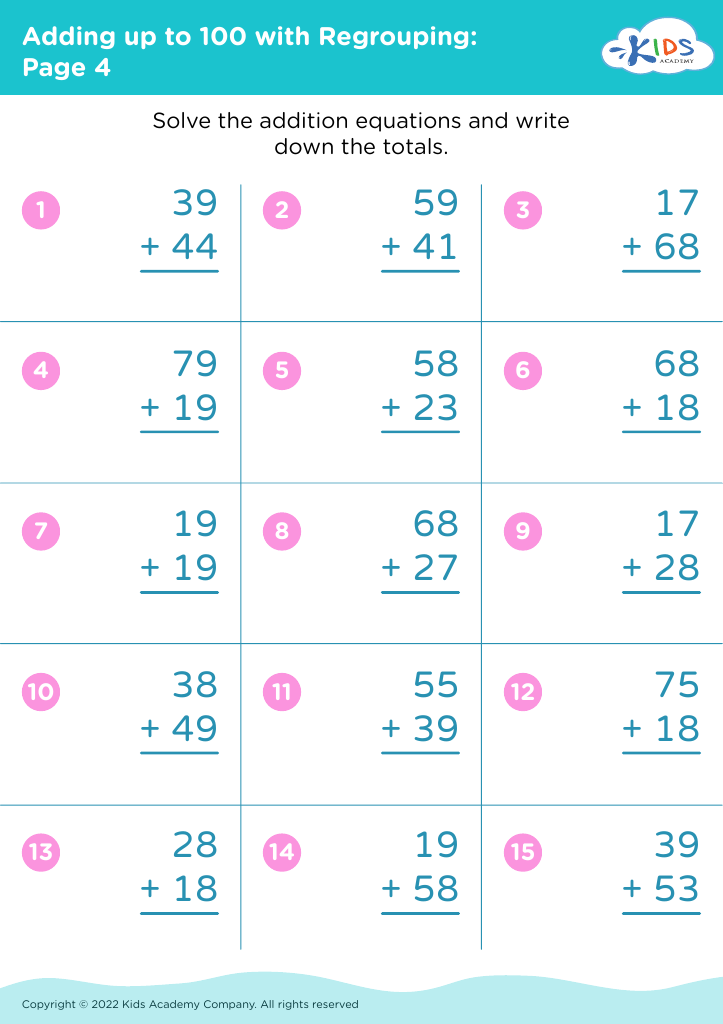Vocabulary Building Adding up to 100 Worksheets for Ages 5-8
3 filtered results
-
From - To
Boost your child’s vocabulary and math skills with our "Vocabulary Building: Adding up to 100" worksheets designed for ages 5-8. These engaging, age-appropriate activities seamlessly integrate literacy and numeracy, allowing young learners to explore essential math vocabulary while mastering addition concepts up to 100. Each worksheet offers interactive exercises that promote critical thinking and language development, ensuring a fun, well-rounded educational experience. From matching words to solving problems, our resources empower children to enhance their comprehension and confidence in both subjects. Download now and watch your child's learning flourish with these targeted and effective vocabulary-building exercises!
Vocabulary building is crucial for children aged 5-8 as it lays the foundation for their overall language development and academic success. During these formative years, children develop their communication skills, which are essential for expressing thoughts, feelings, and ideas. A robust vocabulary enables them to comprehend instructions, engage in conversations, and develop critical thinking skills.
For young learners, vocabulary building at this stage can enhance reading comprehension, making stories and lessons more enjoyable and understandable. Research indicates that children with a rich vocabulary are better equipped to tackle complex texts as they advance in their education. Moreover, academic achievement often correlates with a child’s vocabulary range; thus, fostering this skill early on can lead to greater success in school and beyond.
Parents and teachers can stimulate vocabulary growth through interactive activities, such as reading together, playing word games, or encouraging storytelling. By recognizing the significance of vocabulary building, they provide children with the tools needed to express themselves effectively. Ultimately, this effort cultivates confidence and curiosity, instilling a lifelong love for language and learning. Making vocabulary a priority sets children on a path to becoming articulate, knowledgeable individuals capable of navigating their world with ease.







%20(1).jpg)










